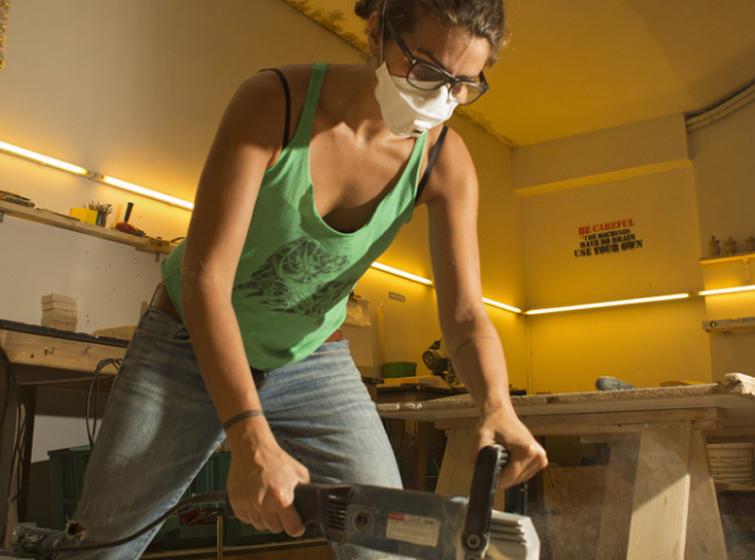
Women still struggle to find a job, let alone reach the top: new UN report calls for 'quantum leap'
New York, Mar 8 (IBNS): Women’s job opportunities have barely improved since the early 1990s, UN labour experts said on Thursday, warning that female workers are still penalized for having children and looking after them.
Released on the eve of International Women's Day, celebrated on 8 March, the International Labour Organization (ILO) report found that 1.3 billion women were in work in 2018, compared with two billion men – a less than two per cent improvement in the last 27 years.
Men still dominate top job sector
“Glass ceiling” concerns over the lack of upward mobility at work also persist, given that fewer than one third of managers are women.
“Women are still under-represented at the top, a situation that has changed very little in the last 30 years,” ILO’s report states. “This is despite that fact that they are likely to be better educated than their male counterparts…education is not the main reason for lower employment rates and lower pay of women, but rather that women do not receive the same dividends for education as men.”
According to the ILO’s findings, women’s pay is 20 per cent lower than men’s, as a global average.
This discrepancy is linked to a career-long “motherhood wage penalty”, which contrasts with the fact that fathers enjoy a “wage premium”.
Worryingly, between 2005 and 2015, there was also a 38 per cent increase in the number of working women who did not have young children, compared to those who had.
This is despite an ILO-Gallup 2017 global report which found that 70 per cent of women prefer working rather than staying at home – something men largely agree with, the organization noted.
‘It will take 209 years to achieve parity in unpaid care work’
“A number of factors are blocking equality in employment, and the one playing the largest role is caregiving,” said Manuela Tomei, Director, ILO Conditions of Work and Equality Department. “In the last 20 years, the amount of time women spent on unpaid care and domestic work has hardly fallen”, she said, while men’s participation has increased “by just eight minutes a day. At this pace of change it will take more than 200 years to achieve equality in time spent in unpaid care work.”
Women often resort to more ‘informal’ jobs
In 2018, according to the report, women were more likely to work in low-skilled occupations and face worse employment conditions than men.
Women are also “more exposed” to informal jobs lacking social protection in more than 90 per cent of sub-Saharan countries, 89 per cent of Southern Asian States and almost 75 per cent of Latin American nations.
“Women are also often found in occupations that are the most vulnerable…such as in domestic, home-based or contributing to family work,” the ILO report notes.
Solutions are available, but it will take a ‘quantum leap’
In terms of solutions that can help create a better future of work for women, the report calls for a “quantum leap” of transformative policy choices.
These include creating or reviewing laws to establish equal rights for all sexes in the world of work, and repealing bans on women entering certain professions, or from working at night or underground.
Efforts are also needed to create “time to care”, the ILO report stresses, explaining that “greater time sovereignty is needed to allow workers to exercise more choice and control over their working hours.”
Those with families would benefit particularly, it explains, while Ms. Tomei added that when men share unpaid care work more equally, “more women are found in managerial positions” as well.
Image Credit: UN Women/Joe Saade
Support Our Journalism
We cannot do without you.. your contribution supports unbiased journalism
IBNS is not driven by any ism- not wokeism, not racism, not skewed secularism, not hyper right-wing or left liberal ideals, nor by any hardline religious beliefs or hyper nationalism. We want to serve you good old objective news, as they are. We do not judge or preach. We let people decide for themselves. We only try to present factual and well-sourced news.







